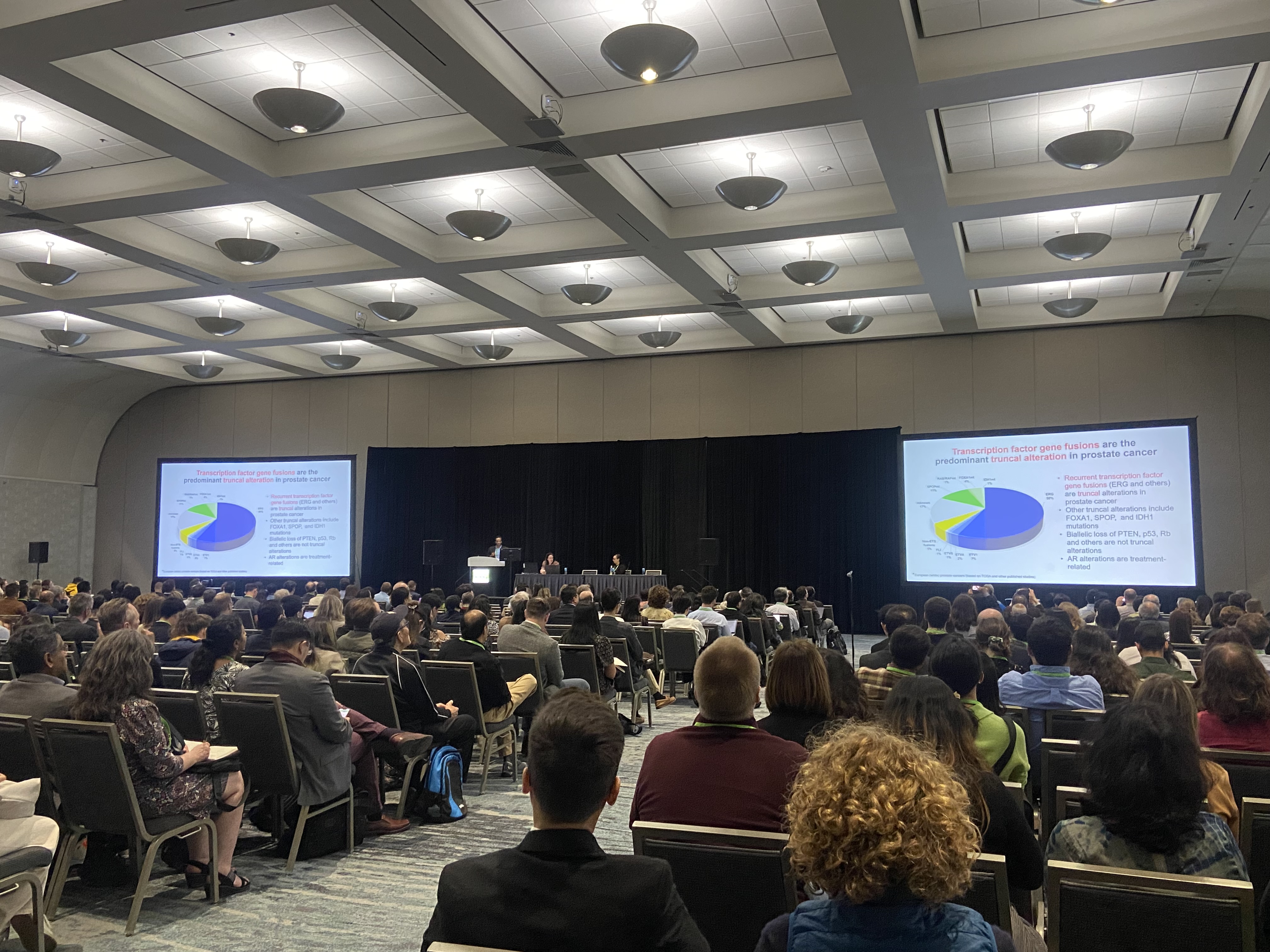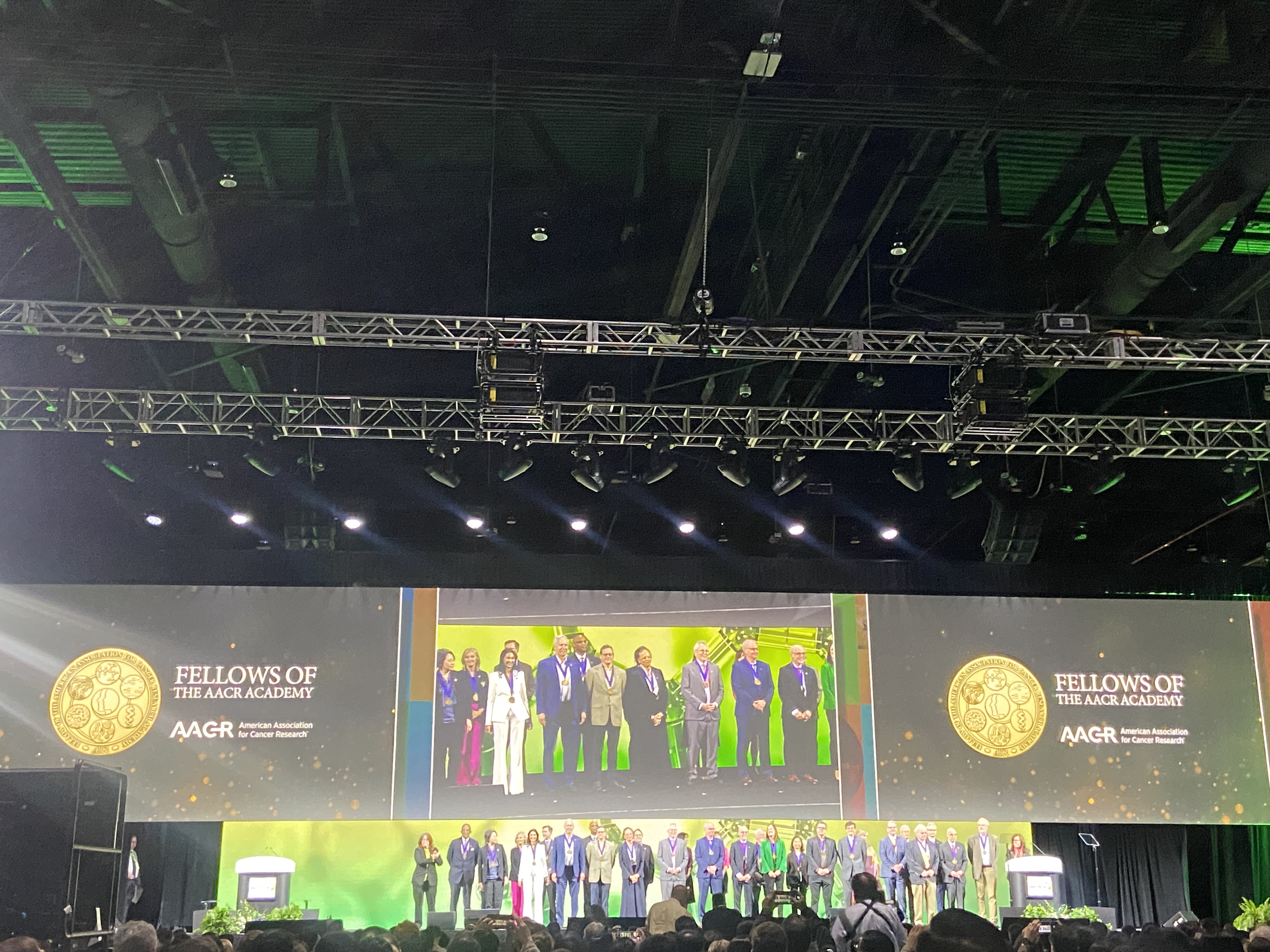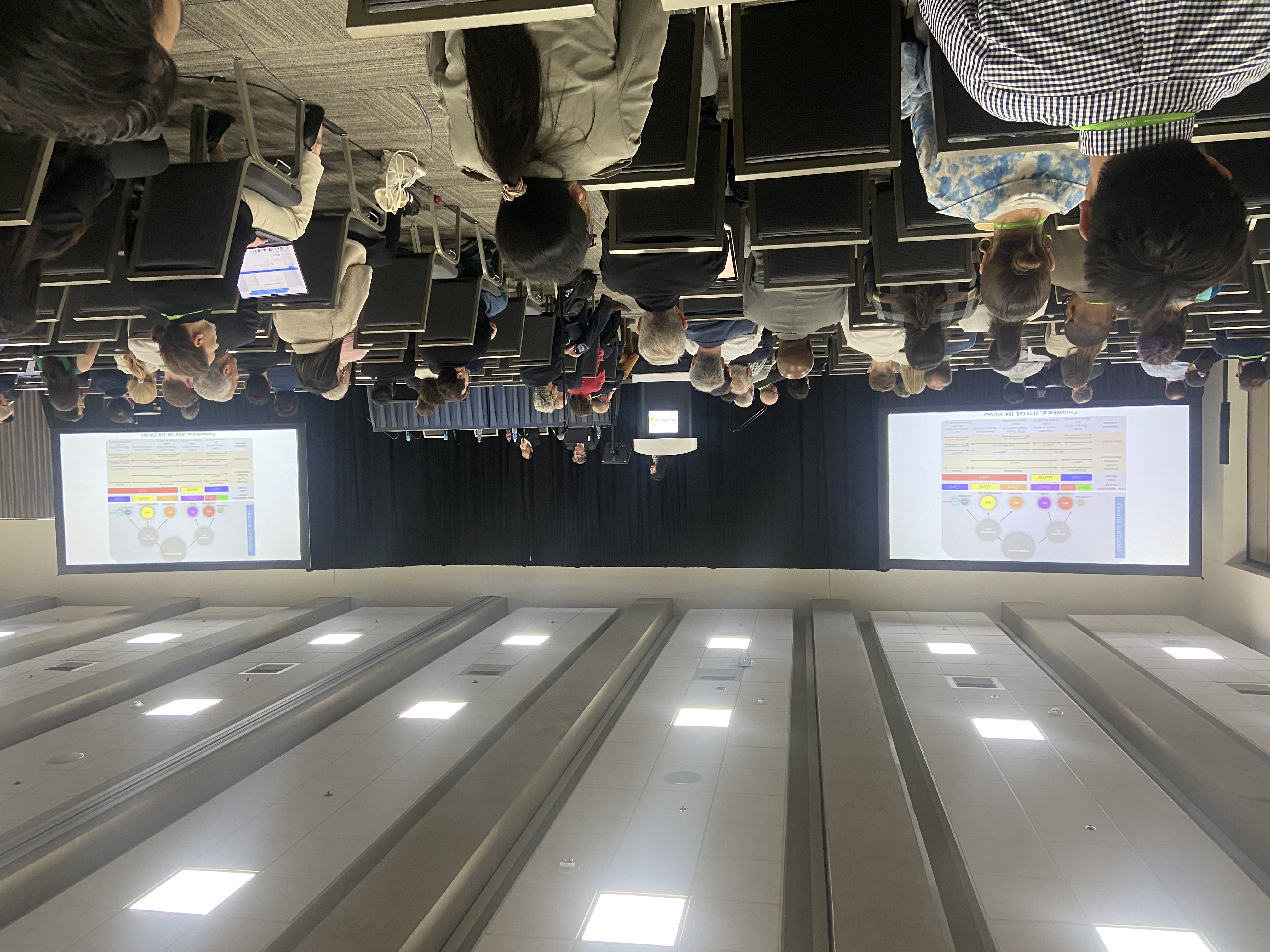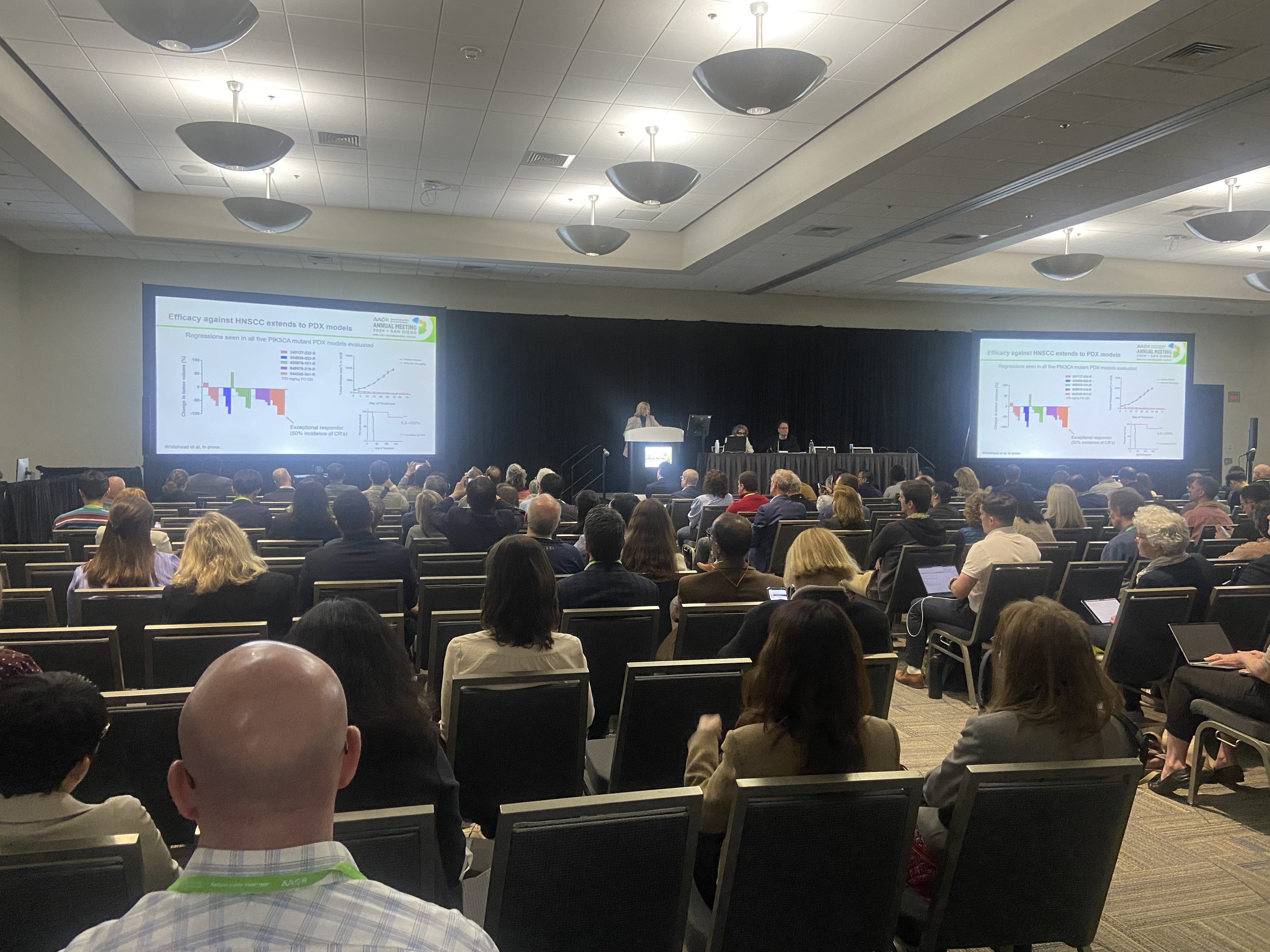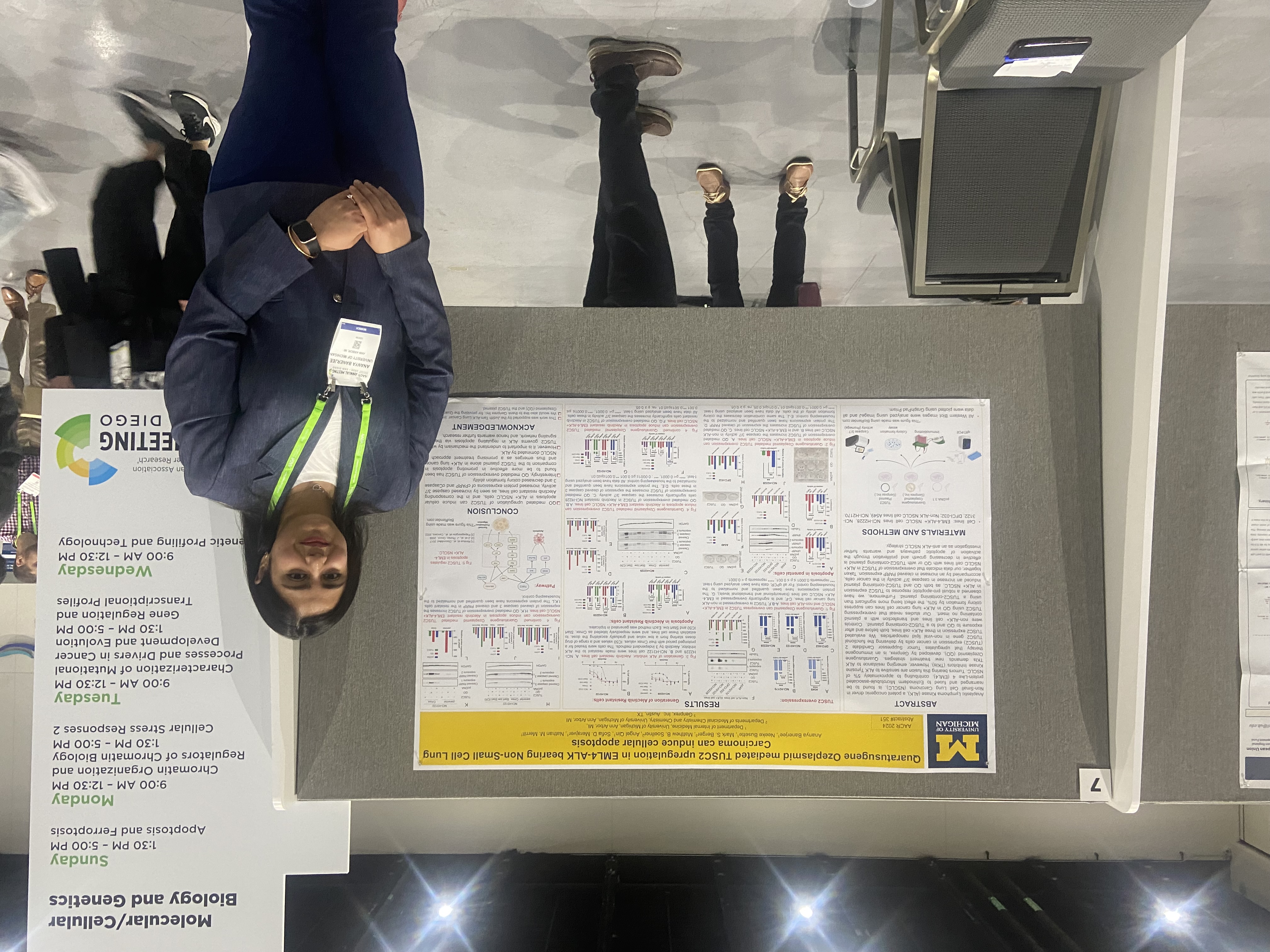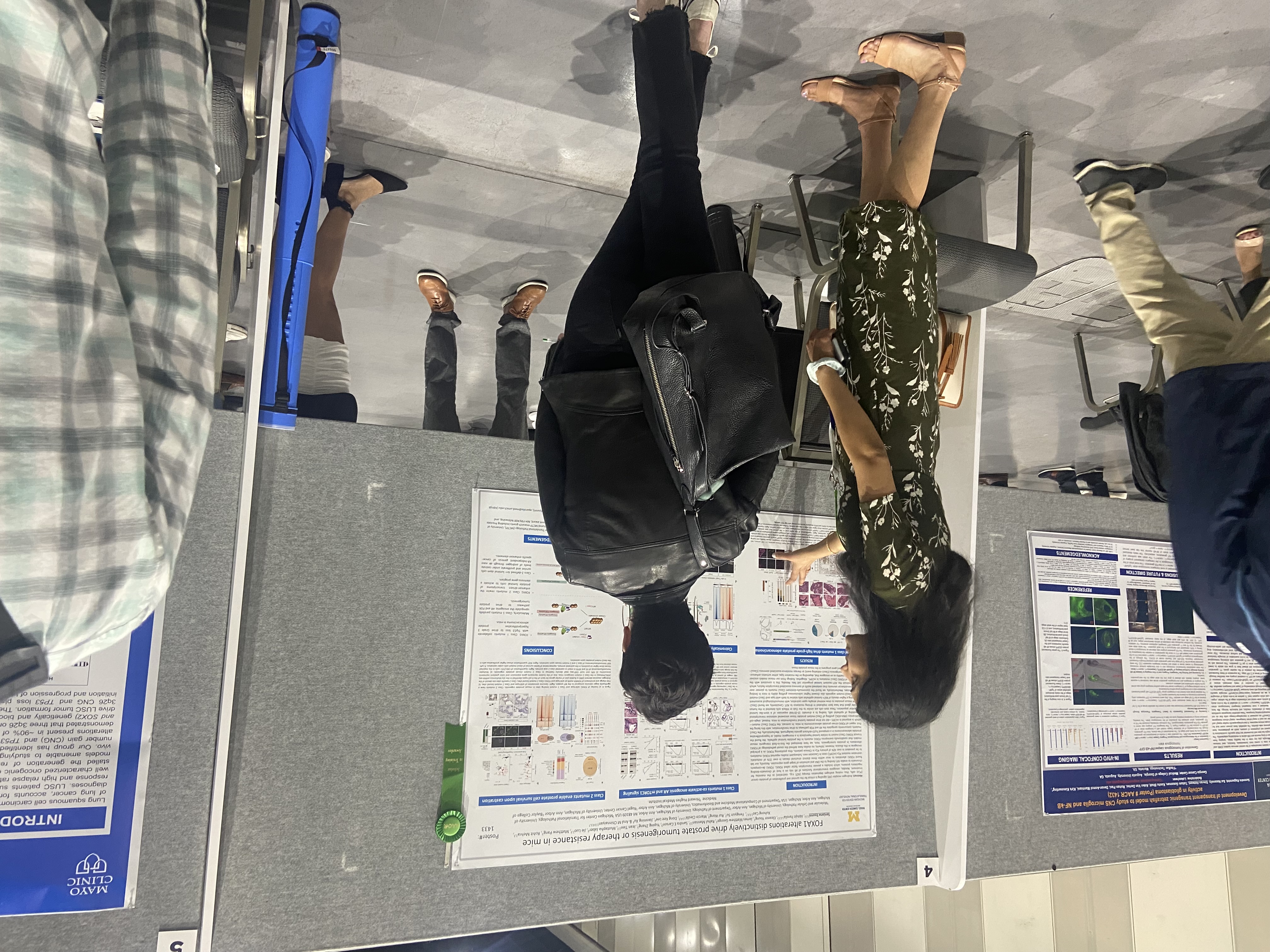AACR 2024: Rogel Recap of the 2024 AACR Annual Meeting
Media contact: Anna Megdell, 734-764-2220 | Patients may contact Cancer AnswerLine™ 800-865-1125
The 2024 American Association of Cancer Research Annual Meeting was held in San Diego, California, this month. Over 60 Rogel Cancer Center researchers led presentations, shared research posters and moderated sessions to an international audience of cancer researchers. Check out the highlights from this year’s meeting.
Arul Chinnaiyan, M.D., Ph.D., director of the Michigan Center for Translational Pathology, shared research on possible therapies to target oncogenic transcription factors to a packed ballroom, highlighting research from a 2022 paper in Nature where Chinnaiyan’s team found that it’s possible to inhibit key components of nucleosomal remodeling factors, of the SWI/SNF pathway, by using PROTAC degrader molecules.
“We’re excited to share how our research can be applied to more cancers than we initially thought,” Chinnaiyan said. “AACR is a great place to get feedback from colleagues in terms of the designs we present and how our ongoing studies have impact on other areas of research.”
Lori J. Pierce, M.D., was one of 30 cancer scientists elected to the AACR class of Fellows of the AACR Academy. Pierce and the cohort were recognized at the meeting’s opening ceremony.
Maria Castro, Ph.D., R.C. Schneider Collegiate Professor of Neurosurgery, presented in a session titled “Advances and Challenges in Therapy for Malignant Glioma” where she discussed epigenetic reprogramming of the DNA repair machinery and hematopoiesis in mutant IDH1 gliomas.
Mats Ljungman, Ph.D., Rogel researcher and professor of radiation oncology, discussed KLIPP, a new technique in precision medicine using CRISPR to target weak spots in cancer cells, in a session titled “Novel Approaches for Targeted Therapies.”
For Ljungman, AACR was an opportunity to generate interest in KLIPP and gain momentum in bringing this precision medicine technique to patients. “There’s often skepticism when we first share it with people, as there should be, because it’s a new concept. But when people understand what KLIPP can do, they are really supportive and understand our challenges,” Ljungman said.
Judith Leopold, Ph.D., professor of radiology and co-lead of development therapeutics at Rogel, shared research on MTX-531, a first-in-class pan-PI3K inhibitor that spares hyperinsulinemia, leading to durable tumor regressions and resilience to adaptive resistance.
Abhijit Parolia, Ph.D., assistant professor of pathology and urology, was named a NextGen Star by the AACR. The award honors outstanding early-career scientists and offers awardees a platform to share their research at the annual meeting.
Parolia’s lab at Rogel started just this year, and the NextGen Star award draws special attention to the work he and his team are doing. “It’s reassuring that some of these ideas are relevant and may be at a place where people find merit in where they could lead,” Parolia said. “It’s very gratifying to receive this recognition.”
Dozens of Rogel trainees and faculty shared research at the AACR Annual Meeting poster sessions. We caught up with so
me of them, including several award winners, to see what they were buzzing about at the conference. Here’s what they had to say:
“This is my first time at AACR. It’s wonderful to meet so many scientists from all over the world. There’s a lot of learning that’s happening. It’s very exciting to present your own work. Receiving comments, suggestions and appreciation is very encouraging.” - Ananya Banerjee, postdoctoral research fellow in Sofia Merajver’s lab
“This is my fourth AACR but first time as a graduate student having a defined project so it’s fun to talk about. There’s such a diversity of topics and new pathways and inhibitors that are coming out. The award is representative of the support I’ve gotten from both of my labs and of how far the project has progressed. I’m proud of everything we’ve done.” - Caleb Cheng, graduate student in Costas Lyssiotis and Arul Chinnaiyan’s labs and recipient of the Scholar in Training Award
“The conference is huge! It's amazing. I’m meeting people who are so passionate about their science and about sharing their experiences. I attended a lecture about women in science and we had an entire audience of women in one hall. I’ve never experienced that before. It gives me confidence that I’m on the right track.” - Mahnoor Gondal, third-year Ph.D. student in bioinformatics, winner of the Women in Cancer Research Scholar Award, and first-time conference attendee
“I’m an engineer and pharmaceutical scientist, so to interact with all the clinicians and to know what’s going on in the clinics has been fantastic and exciting.” - Xingwu Zhou, Ph.D. student in James Moon’s lab
“It’s a colossal honor. That recognition means a lot to me that our work is important and has the potential to make a real difference in real peoples’ lives.” - Drew Scott, postdoctoral research fellow in radiation oncology and recipient of the Scholar in Training Award
“I’ve gotten to see a lot of big names in my field of chemical biology. The networking with pharmaceutical companies has been amazing.” - Alyssa Winkler, graduate student in pathology
“I’ve enjoyed the talks from other researchers in prostate cancer who understand genomics. It was nice to hear how they understand the disease.”
- Sanjana Eyunni, fifth-year graduate student, Scholar in Training Award recipient and first-time AACR conference attendee


